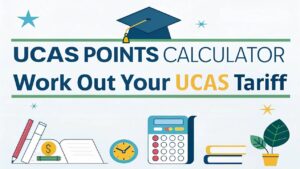If you’re planning to immigrate to Canada through Express Entry, your CRS score is the key factor that determines your eligibility. The CRS Score Calculator helps you quickly estimate your Comprehensive Ranking System points.

Your CRS score determines your rank in the Express Entry pool. The higher your score, the better your chances of receiving an Invitation to Apply (ITA) for permanent residency. Understanding and improving this score is the key to your Canadian dream.
In this guide, we’ll explain what CRS is, how scores are calculated, share a CRS score chart, and introduce our free CRS Score Calculator tool to help you plan your Canada immigration journey efficiently.
What is CRS (Comprehensive Ranking System)?
The Comprehensive Ranking System (CRS) is a points-based system used by Immigration, Refugees and Citizenship Canada (IRCC) to evaluate candidates for Express Entry. CRS scores determine how competitive your profile is in the Express Entry pool.
Candidates with the highest CRS scores are more likely to receive an Invitation to Apply (ITA) for permanent residency in Canada. CRS evaluates factors such as age, education, work experience, language ability, and adaptability.
Related Link: IRCC Express Entry Official Site
CRS Score Calculator
Planning to immigrate to Canada? Your CRS score is the key to securing an Invitation to Apply (ITA) through Express Entry. Our CRS Score Calculator lets you:
CRS Score Calculator
Calculate your Comprehensive Ranking System (CRS) score for Canada’s Express Entry immigration program
Core Human Capital
0 pointsEnglish
French
Spouse/Partner Factors
0 pointsSkill Transferability
0 pointsAdditional Points
0 pointsYour CRS Score
Recent Draw Information
Last draw: CRS 481 (June 28, 2025)
Invitations issued: 4,300
What does your score mean?
Enter your information to see how competitive your score is for Express Entry.
How CRS Scores Are Calculated
Understanding the CRS calculation is crucial before using a CRS calculator. The score is out of 1,200 points and is divided into two main sections:
1. Core/Human Capital Factors
These factors account for most of the CRS points:
- Age: Maximum points for candidates aged 20–29. Points decrease with age.
- Education: Higher education credentials earn more points. A PhD or Master’s degree scores the highest.
- Language Ability: Proficiency in English and/or French is measured using IELTS, CELPIP, or TEF. Higher scores = more CRS points.
- Work Experience: Canadian work experience is highly valuable. Foreign work experience also contributes.
2. Spouse or Common-Law Partner Factors
If you have a spouse or common-law partner, some points are awarded based on:
- Education
- Language proficiency
- Canadian work experience
3. Skill Transferability Factors
These points consider combinations of education and experience with language ability:
- Education + strong official language proficiency
- Foreign work experience + Canadian work experience
- Certificate or diploma + language skills
4. Additional Points
Certain situations earn extra CRS points, including:
- Sibling in Canada
- French language skills
- Post-secondary Canadian education
- Job offer from a Canadian employer
- Provincial nomination
CRS Score Chart / Points Distribution

Here’s a simplified CRS points breakdown for Express Entry applicants:
| Factor | Maximum Points (Single) | Maximum Points (With Spouse) |
|---|---|---|
| Age | 110 | 100 |
| Education | 150 | 140 |
| Language (1st official language) | 136 | 128 |
| Language (2nd official language) | 24 | 22 |
| Canadian Work Experience | 80 | 70 |
| Foreign Work Experience + Language | 50 | 50 |
| Skill Transferability | 100 | 100 |
| Additional Points | 600 | 600 |
Note: Points may vary slightly depending on changes in IRCC policies. Always check the official CRS guidelines for the latest updates.
Try Our Free CRS Score Calculator Tool
Estimating your CRS score manually can be time-consuming. That’s why we developed a user-friendly CRS Score Calculator.
Features:
- Calculates your CRS score instantly
- Provides a detailed CRS score breakdown
- Suggests strategies to improve your points
- Free and accessible from any device
Use the CRS Score Calculator Now and discover your Canada immigration points instantly!
How to Improve Your CRS Score
If your CRS score is lower than the recent Express Entry cut-off, don’t worry. There are several ways to increase your CRS points:
Tracking your points is the first step. Whether you’re calculating UCAS points for academic planning or CRS points for immigration, using a reliable calculator ensures you know where you stand. Try our UCAS Points Calculator for reference.
1. Improve Language Scores
Higher IELTS, CELPIP, or TEF scores significantly increase your points. Consider retaking tests or attending language courses.
2. Gain More Work Experience
Canadian work experience adds more points than foreign experience. Even temporary or part-time jobs in Canada may help.
3. Upgrade Education
Completing higher education or obtaining Canadian credentials boosts CRS points.
4. Obtain a Job Offer in Canada
A valid job offer supported by a Labour Market Impact Assessment (LMIA) can add up to 200 points.
5. Provincial Nomination Program (PNP)
Being nominated by a Canadian province instantly adds 600 CRS points, almost guaranteeing an ITA.
6. Include a Spouse or Partner Strategically
If applicable, your spouse’s education, work experience, and language skills can contribute valuable points.
Pro Tip: Use our CRS Score Calculator to simulate how each change impacts your total score.
CRS Cut-off Scores & Recent Trends
CRS cut-off scores fluctuate with each Express Entry draw. Recent trends indicate:
- Typical CRS scores for ITA range between 470–510
- Comprehensive draws may include Canadian Experience Class or Federal Skilled Worker candidates
- Additional points from provincial nomination can help bypass high cut-off scores
Keeping an eye on these trends can help you plan and maximize your CRS points.
Why a CRS Calculator is Essential for Express Entry Applicants
A CRS Score Calculator is a must-have tool for anyone applying through Express Entry:
- Saves time by calculating scores instantly
- Shows a detailed CRS score breakdown for each factor
- Helps applicants plan improvements strategically
- Reduces guesswork and increases confidence before applying
By knowing your CRS score early, you can make informed decisions about improving your eligibility, applying for provincial nominations, or enhancing language skills.
FAQs
Q1. What is a good CRS score for Canada?
Q2. How often are CRS draws held?
Q3. Can I apply with a low CRS score?
Q4. Does having a spouse affect CRS points?
Q5. What is the maximum CRS score?
Q6. Can I retake language tests to improve CRS?
Conclusion
Your CRS score is the foundation of your Canada Express Entry application. Understanding how it is calculated and knowing your current points is crucial for a successful immigration journey.
Use our CRS Score Calculator to instantly calculate your Comprehensive Ranking System points, analyze your strengths and weaknesses, and plan strategies to improve your chances of receiving an ITA. Don’t wait—check your CRS score now and take the first step toward Canadian permanent residency!




